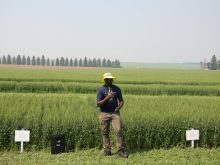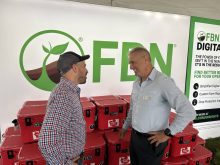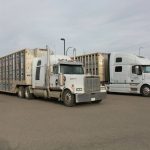(Reuters) — Norway’s Yara, one of the world’s largest fertilizer makers, is slashing ammonia production due to soaring gas prices, raising questions about Europe’s ability to produce enough fertilizer for its crops.
Ammonia plays a key role in the manufacturing of fertilizer.
Yara has repeatedly warned the world faces an extreme food supply shock due to a combination of high gas prices, the war in major grains producer Ukraine and sanctions on fertilizer producer Russia.
Fertilizers require large amounts of energy to be produced. Manufacturers such as Yara use gas for the process. Gas prices have surged almost 40 percent in August and nearly 300 percent this year.
Read Also

Agri-business and farms front and centre for Alberta’s Open Farm Days
Open Farm Days continues to enjoy success in its 14th year running, as Alberta farms and agri-businesses were showcased to increase awareness on how food gets to the dinner plate.
“That is going to lead to a bit lesser volume supplied on the soil. And basically, in short, the long-term implication is higher food prices,” said Berenberg analyst Adrien Tamagno.
Yara began reducing ammonia production earlier in the year. It will only be using around 35 percent of its European ammonia capacity after its latest cuts, the company said Aug. 25.
“We’ve basically never seen prices high enough to defend production at these cost levels,” said Kepler Cheuvreux analyst Magnus Melvær Rasmussen. “It’s not looking good and that’s a problem for farmers, for food production and for food security.”
Farmers will still be able to import fertilizer from outside Europe but it will be more expensive, analysts say. Alternatively, European fertilizer could be produced using ammonia exported from elsewhere.
Yara will use imported ammonia, where feasible, to meet customer demand, it said.
“It’s hard to see that you would be able to replace everything that’s potentially missing,” said Rasmussen.
Yara is one of several European chemical companies that have curtailed ammonia output. Germany’s SKW Piesteritz and BASF cut production earlier in the year.
The trend accelerated this week.
Grupa Azoty, Poland’s biggest chemicals firm, will limit fertilizer production, it said Aug. 24, citing an “extraordinary and unprecedented” rise in gas prices.
CF Fertilizers U.K. a subsidiary of CF Industries Holdings, is temporarily halting ammonia production at its Billingham Complex, United Kingdom, due to high natural gas and carbon prices, it said on Aug 24.















